NATS is the world’s leading provider of a range of air traffic services. This includes providing air traffic control (ATC) services for some of the world’s busiest airports. It is constantly seeking to create solutions to the air space and airport runway optimisation issues in the aviation industry. NATS was established as a national body within the UK in 1962 and in 2001 became a Public/Private Partnership (PPP). This new model of ownership led to more investment (over £2b since the PPP), which in turn has improved NATS’ safety performance, operational efficiency and output through continued innovation. A major part of its business is to provide air traffic control services in the UK. The experience and expertise of its highly trained workforce is critical to solving the multitude of challenges faced by the aviation industry around the world. NATS is also responsible for the world’s busiest section of airspace, including Gatwick and Heathrow. Air traffic does not rest or sleep, so the company operates 24 hours a day, 365 days of the year, including Christmas Day.
NATS has built its reputation on providing a wide range of services to the world’s busiest airports and airspaces, with safety and efficiency the key factors of operation. NATS has a safety record that is second to none. Whilst safety is the key reason for NATS’ existence, there are six key focus areas of the business. These include: Airspace; Airports; Engineering; Consultancy; Information and Defence service lines which are full profit and loss led business platforms. The specialist services offered by NATS range from managing airspace (ATC) and runways, to providing consultancy and solutions in fields such as: operational; environmental; engineering infrastructure; specialist aviation software design; satellite based solutions; defence services and training.
Within each service area NATS strives for total customer satisfaction. NATS boasts the best performance of aircraft on time departures and arrivals, with the lowest delay figures of any air traffic control company. Its safety system, which is used by other countries as a model, is sold through the Aero NATS Ltd side of the business. While each service line can provide solutions to problems, they can also work closely with each other. This provides seamless, multi-faceted solutions tailored for today’s complex aviation environment.
NATS does, however, still face many challenges, and one of the biggest they are facing at the moment is the continuing development of its technology platforms. As technology continues to evolve and improve, it’s vital for NATS that they are at the forefront. This is no simple feat, from ensuring staff are fully trained in up-to-date methods to providing a continuous operation whilst technological transitions occur.
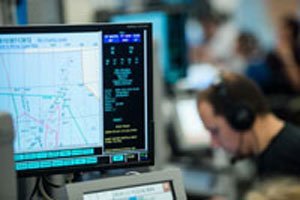
These technological developments play a huge factor in allowing the airline industry to meet their environmental and operational efficiency targets. These are achieved by reducing fossil fuel burn levels by designing higher levels of flight efficiency and reducing the inbound holding delays.
Stakeholders are the people or groups who have a stake or interest in the success and performance of a business. They include two broad types of groups: those who are directly involved with the organisation—internal stakeholders; the other is those that have an interest in the business, but are further away from it—external stakeholders.
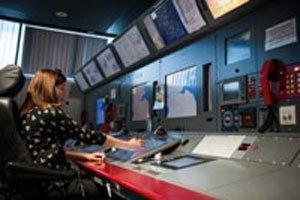
Whilst NATS will want to know that it can trust the efficiency of the supplier, from meeting delivery dates to ensuring that it is buying the best quality software and equipment. Another example of the complex relationship is provided by NATS’ dealings with governments. NATS provides a national and public service but is a PPP company working with Air Navigation Service Providers (ANSPs), airlines, airports and governments in over 30 countries. In the rest of Europe, apart from the UK, airports are state owned, so NATS also has to respond to European and International regulations. This means that it has to see what new regulations may be in the pipeline, and make advance plans to respond to them.
NATS has a wide variety of stakeholders, all of which have their own targets and objectives. NATS recognises the importance of each of them. It also sees the necessity of keeping stakeholders interested and involved to support the company strategy. NATS knows that it is vital to communicate with each of its stakeholder groups. This has to be two way communication, so that stakeholders can discuss issues with NATS and vice versa. To help with this, NATS holds monthly meetings with key stakeholders. These are used to discuss new projects and technologies. One of the aims of NATS is to ensure that any project it completes is ‘future-proofed’. This means it is ready to use new methods and technology when they become available. NATS also holds a number of annual meetings, looking at wider issues such as long-term investment and future business planning.
Communication with the key internal stakeholder group of employees is also a top priority for NATS. There is also one-way communication in the form of information and material produced by NATS for both current and prospective clients.
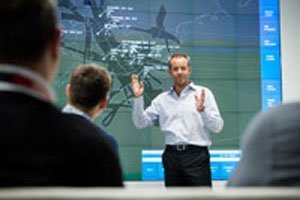
NATS shares these experiences with its stakeholders, with total transparency in everything it does. NATS has the capacity to link together every aspect of a project across the world and will work with local stakeholders to consider how it can best provide a total service offering that meets their needs.
NATS’ excellent relationships with the main industry stakeholders means that it can bring airports, major airlines, regulators and local ANSPs together to solve complex operational challenges. This has the positive result that aviation projects run by NATS and its stakeholders are more efficient. NATS has also formed strong partnerships with another key stakeholder group – its suppliers. A range of selected suppliers have proved that they are able to deliver, so are preferred by NATS; these are known as their preferred suppliers.
NATS’ people are an integral group of internal stakeholders and NATS’ continued success depends on the strength and contributions of its workforce. For a business to remain a success, its people need to be at the heart of the operation. This, again, is a two-way process. The business wants the best for and from its people, and NATS believe the investment they make into their people is as critical as any other investment they make. Equally, NATS understands fully that people need to feel valued if they are going to be able to give their best and the loyalty and efficiency NATS enjoys is a testament to this philosophy. People joining the NATS team know that their voice and opinion will be heard. NATS believes that it gets the best out of people by offering them the best working environment, personal development and career opportunities.
As employees are a key stakeholder in the success of a business, NATS has to ensure it has the workforce required

NATS’ engineers and over a third of its air traffic controllers. Rather than seeing this as a problem, NATS sees it as an opportunity to invest in the future by bringing in recruits trained in new processes and new technology. New skills and competencies, will lead to increasing efficiency.
To stay as a leading player in its field, NATS needs to innovate to maintain operational effectiveness and a competitive edge.
To attract the best recruits, NATS offers the opportunity for a long and varied career path with high levels of training, opportunities to be involved in exciting initiatives and to making a difference on a global level. NATS’ vision of being a truly global business means employees have opportunities all over the world and in many different fields. The competition for places to train as air traffic controllers is intense, but the possible rewards are worth the effort to succeed. But it’s not just air traffic controllers’ that work for NATS, the company has many exciting and varied roles and employees work at the technological cutting edge as part of a truly diverse workforce.
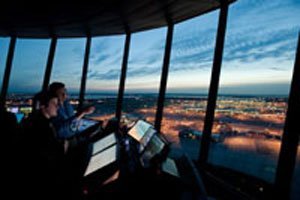
To achieve this engagement, NATS has a team dedicated to employee communications. There are a number of ways that NATS communicates with employees, including an intranet site which features the latest company and industry news and articles highlighting updates on all the latest projects and how teams are striving for success. Employees are also encouraged to leave comments on the articles.
Another key stakeholder group is the airports for which NATS provides services. These include some of the most well known and important UK airports, including Heathrow and Manchester. Heathrow is the third busiest airport in the world, with almost half a million air transport movements a year. 2013 was its busiest ever year with NATS responsible for handling the movements of over 72 million passengers.
The airports with which NATS works are routinely invited to meet with representatives of the
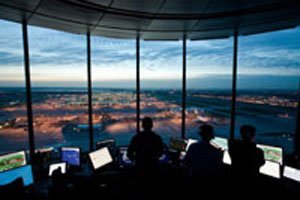
privatised company, NATS understands that customers are its lifeblood. It needs to ensure that customer needs are met and that these key stakeholders are kept satisfied and informed.
NATS is one of the world’s leading air navigation control companies. It has one of the best safety records of any similar operation. In order to maintain this position, and to grow as a business, NATS needs to take account of all of the views of its stakeholders. To do this it

Good recruits that fill the tough requirements required by various roles know that they are part of a business that is on an exciting journey. NATS is keen to invest not only in the best recruits, but also in their future development. Customers, in particular airports, are also key stakeholders. NATS knows it is vital to work with such important customers as partners in an open relationship. It has developed a transparent approach which breeds more trust in customers and brings about a much better and more efficient two-way relationship. NATS is a forward thinking company that is currently aligning itself for an exciting future ahead.
